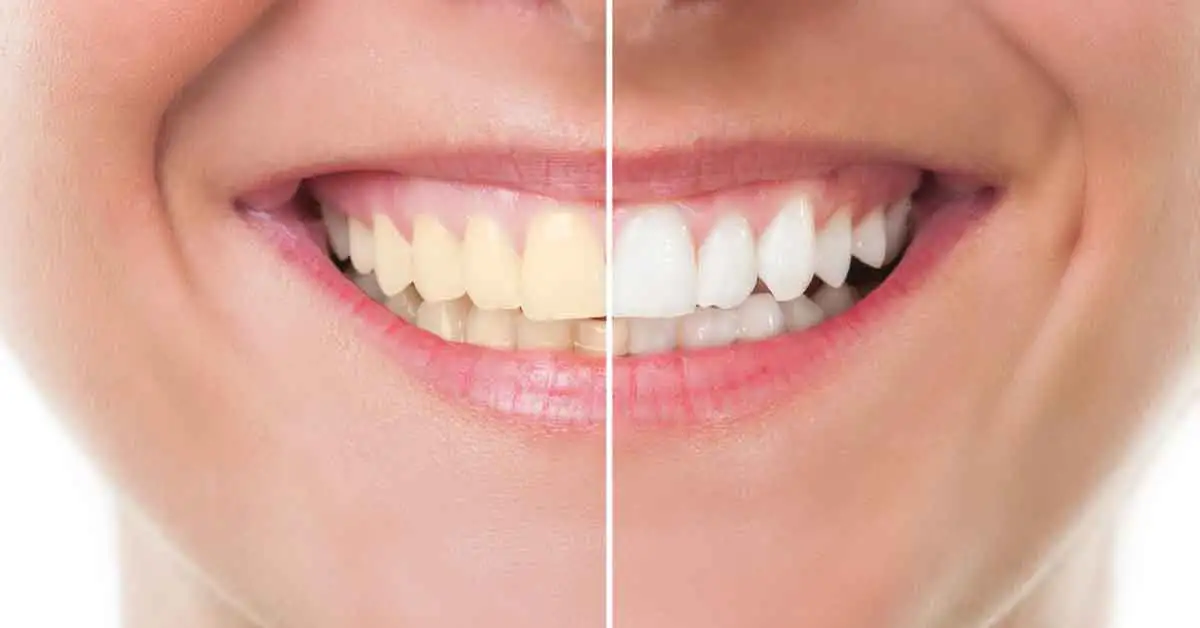Table of Contents
ToggleHaving whiter teeth is a dream for many people. But can the teeth whitening process harm teeth while making this dream come true? This question is particularly common among those who resort to this method for aesthetic reasons. The answer varies depending on the method used, the process, and the application method.
Why is Teeth Whitening Preferred?
The color of teeth can change over time. This is usually caused by daily habits. Products such as tea, coffee, and cigarettes cause stains on the surface of the teeth. In addition, aging, medication use, and genetic factors can also affect tooth color.
Teeth whitening is an aesthetic solution applied to remove these stains. It gives the person a healthier and more attractive smile. However, there are some details you should know before undergoing this procedure.
Is teeth whitening harmful?
Some chemicals used to achieve teeth whitening can damage tooth enamel. However, this damage is mostly caused by the use of unregulated products and applications performed by non-professionals. The risk is very low when the procedure is performed in a clinical setting under the supervision of a specialist.
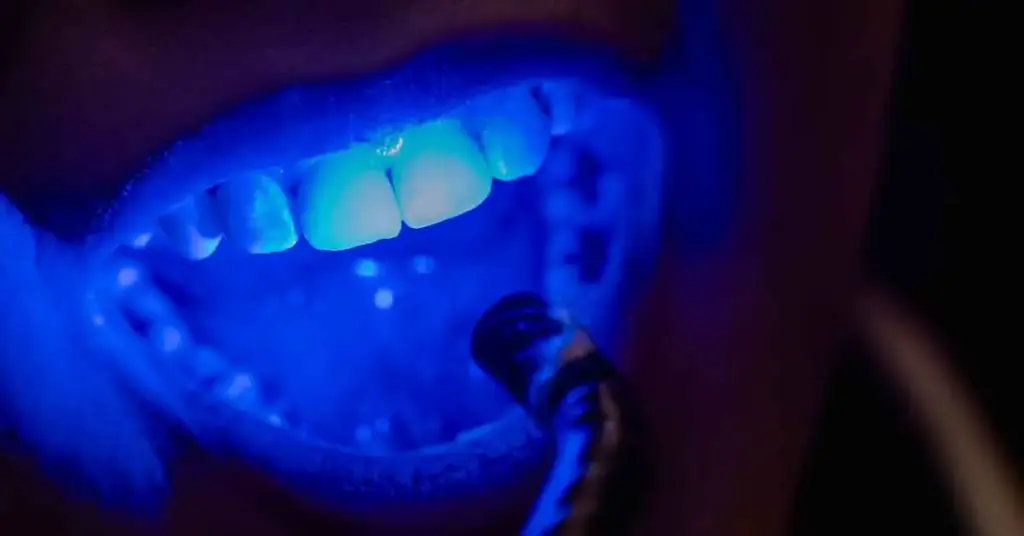
Possible side effects include:
- Weakening of the tooth enamel
- Temporary tooth sensitivity
- Gum irritation
- A burning sensation in the mouth
- Color unevenness
These side effects are usually temporary. However, improper application can lead to permanent damage. Therefore, it is essential to consult a dentist before undergoing the procedure.
The Safest Teeth Whitening Methods
Teeth whitening methods are divided into two categories: professional (clinical) and home applications. Both methods have their advantages and limitations. The important thing is to choose the one that suits the individual’s tooth structure.
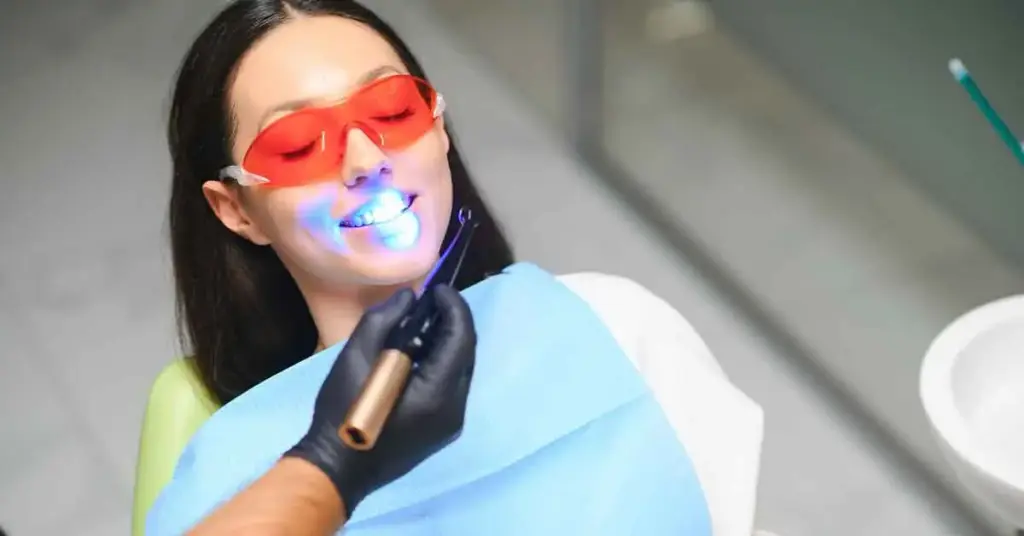
1. Office-Based Whitening (Clinical Application)
Performed by a dentist.
Gels and special light devices are used. Effective results are usually achieved in a single session.
2. Home Whitening
Applied using special trays and gels provided by the dentist. May take 1-2 weeks. Effective and safe.
3. Whitening Toothpastes
Removes surface stains. Does not provide long-lasting results. Suitable for daily care.
4. Natural Methods
Substances such as baking soda and lemon are used. They can damage tooth enamel. Not recommended by experts.
Clinical methods are both more effective and less risky. Home procedures should be performed with caution. Solutions that appear natural but may be harmful should be avoided.
Who Should Not Whiten Their Teeth?
Although teeth whitening provides aesthetic benefits, it is not suitable for everyone. Certain health conditions or age groups may cause this procedure to have risky results. The chemical agents used during teeth whitening can have negative effects on sensitive or developing teeth.
Therefore, it is very important to undergo a personal evaluation before the procedure. Whitening performed without a doctor’s supervision can cause more harm than good. For this reason, the following groups must consult a specialist before the procedure.
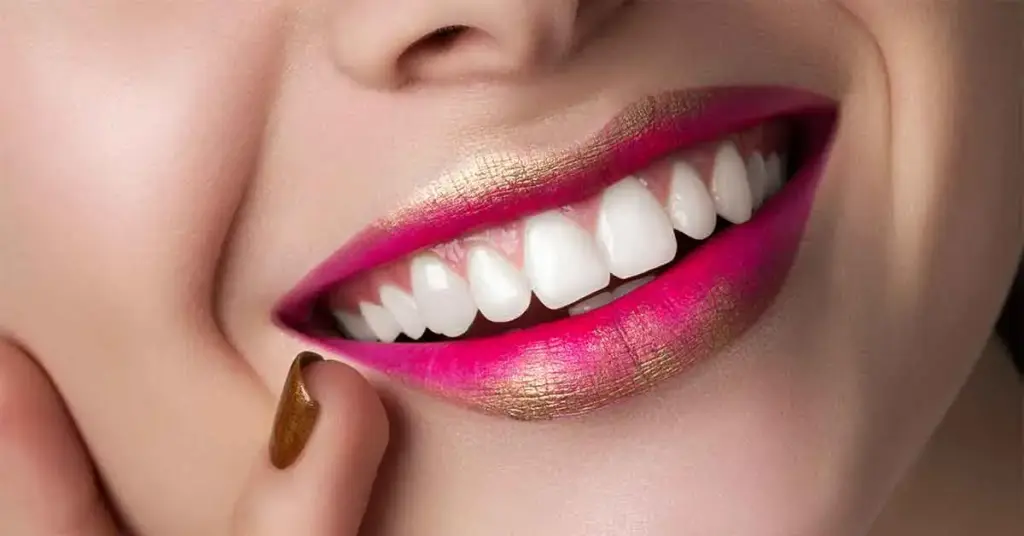
Groups not suitable for teeth whitening:
- Individuals under the age of 16: Sensitivity may increase due to the enamel not being fully developed.
- Pregnant and breastfeeding women: The effects of chemical substances are not fully understood, so risks should be avoided.
- Individuals with gum disease: Burning, irritation, and irreversible effects may occur in the gums.
- Individuals with enamel erosion: Teeth whitening may cause permanent damage in individuals with weak tooth enamel.
- Those with a history of severe allergies: There is a risk of reaction to the gel and other substances used.
Different aesthetic solutions or alternative treatments should be preferred for these groups. The most appropriate approach is to make a personalized plan after a detailed examination.
Why is post-teeth whitening care important?
Post-teeth whitening care is critical for both maintaining the health of your teeth and preserving the whiteness you have achieved. The first few days are particularly sensitive. Teeth are more sensitive to coloring agents.
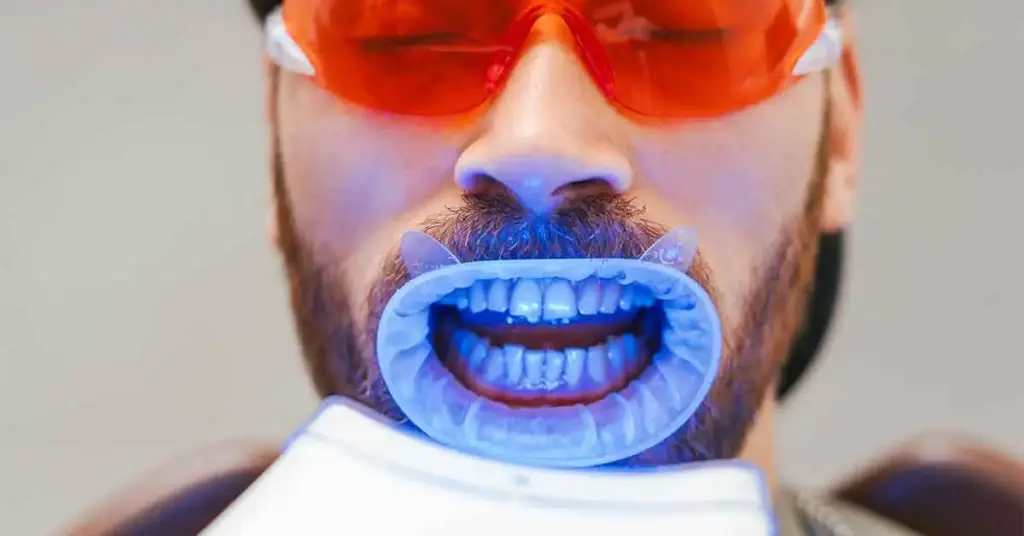
Here are some care recommendations to follow:
- Avoid tea, coffee, cigarettes, and acidic beverages for the first 48 hours.
- Brush your teeth regularly and use dental floss.
- Choose fluoride toothpaste.
- Do not neglect routine check-ups.
- Reduce your intake of staining foods.
By following these recommendations, you will have a healthy smile and ensure proper post-treatment dental care.
Harmful or Beneficial?
Teeth whitening is generally harmless when done correctly. However, unregulated products and improper application can cause serious problems. Therefore, do not compromise your dental health for the sake of whiter teeth.
Remember: While aesthetic appearance is important, dental care is the foundation of everything. The most beautiful smile is a healthy one.
For more information about teeth whitening procedures, please contact us.
Be sure to check out what we’re doing on social media.

